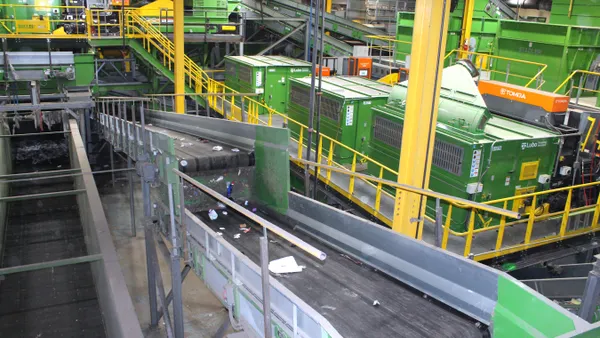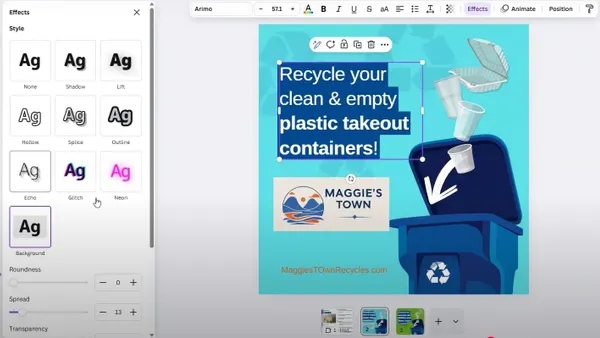Dive Brief:
- Although Tampa, FL residents and businesses recycled twice the materials in 2015 than in 2008, the city’s annual revenue generated from those materials fell from $660,000 in 2008 to $163,000 in this past year. And the recycling program's cost has risen to $4.3 million per year, up by almost $1 million compared to 2010, with the city incurring some of the expense.
- Tampa’s sorters and handlers have increased their handling fees for cities and counties to help make up the cost, which may be transferred to residents and businesses through higher collection fees if commodities’ values stay low. Meanwhile, Waste Management, who handles Tampa’s recycling, is seeing high volumes of non-recyclables thrown in bins. Dawn McCormick, communications director for Waste Management, said residents are tossing more than double the 10% of contaminant the company can handle.
- To resolve the improper disposal problem, Tampa will launch a consumer education program this spring.
Dive Insight:
Despite elevated operational costs, lowered value of commodities, and the problem of contamination, Mark Wilfalk, director of Tampa’s Department of Solid Waste and Environment Program Management, said there are plenty of benefits of recycling that don’t appear on the government ledger.
For example, recycling trash diverts waste burned at the McKay Bay Refuse to Energy Facility, which burned about 307,000 tons this year, close to its capacity.
"As you can see, it’s not a money maker for us, but the opportunities and benefits it provides the city outweigh the dollars," Wilfalk said. "If we didn’t have our recycling program, our plant would probably be right at its capacity or be maxed out."
"People are overly ambitious and confused," McCormick said. "They’re putting in plastic bags, plastic film, dry-cleaning bags. They’re putting all kinds of plastic not called for in the recycling stream."
This is a national trend, where well-meaning residents often do not fully understand what they can and cannot recycle.
Hillsborough County, like Tampa, is seeing a lot of non-recyclables discarded in bins and that county is also increasing outreach efforts to change this pattern.
"We’re going to update the county’s website and focus on educating people what materials you want to go into your cart and not using it as a separate garbage cart," said Travis Barnes, a Hillsborough County recycling coordinator.
Cities need to look beyond the bottom line when making decisions about recycling, said Phil Compton, senior organizing representative for National Sierra Club and a recycling volunteer in the Tampa area. He uses as an example the fact that recycling one 12-ounce soda can saves six ounces of gasoline, and reduces the mining of new aluminum.
"The city wouldn’t realize that saving in energy, but the world does," said Compton.









